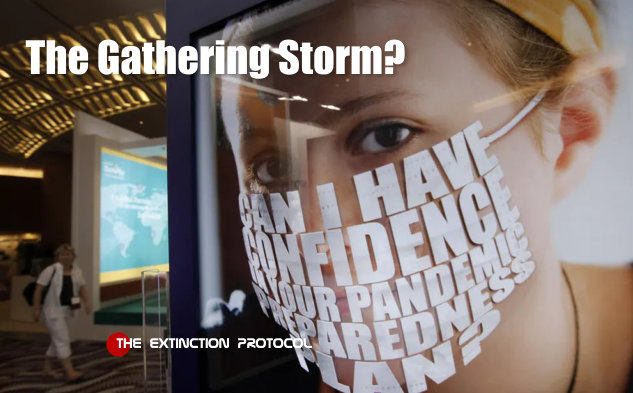
“There’s likely to be a period of widespread transmission in the U.S., and I hope we will avert the kind of chaos that some other places are seeing.” -Mark Lipsitch PhD, Professor of epidemiology – Harvard
GAZETTE: Is it significant that there are so few cases internationally compared with the number in China? Is that an indication that control measures are working or is it just gathering steam internationally?
LIPSITCH: Unfortunately, I think it’s more likely to be that it’s gathering steam. We’ve released a pre-print that we’ve been discussing publicly — and trying to get peer reviewed in the meantime — that looks at the numbers internationally, based on how many cases you would expect from normal travel volumes. And a couple of things are striking. One is that there are countries that really should be finding cases and haven’t yet, like Indonesia and maybe Cambodia. They are outside the range of uncertainty you would expect even given variability between countries. So our best guess is that there are undetected cases in those countries. Indonesia said a couple of days ago that it had done 50 tests, but it has a lot of air travel with Wuhan, let alone the rest of China. So 50 tests is not enough to be confident you’re catching all the cases. That’s one bit of evidence that to me was really striking. Second, I was reading The Wall Street Journal that Singapore had three cases so far that were not traced to any other case. Singapore is the opposite of Indonesia, in that they have more cases than you would expect based on their travel volume, probably because they’re better at detection. And even they are finding cases that they don’t have a source for. That makes me think that many other places do as well. Of course, we’re making guesses from limited information, but I think they’re pretty likely to be correct guesses, given the totality of information.
GAZETTE: But what is most important for the public to know about this?
LIPSITCH: There’s likely to be a period of widespread transmission in the U.S., and I hope we will avert the kind of chaos that some other places are seeing. That’s likely if we continue to be prepared, but I think it’s going to be a new virus that we have to deal with. That won’t be because the United States government has failed to contain it, it will mean that this is an uncontainable virus. If we’re dealing with it, it’s because everybody’s going to be dealing with it. I think that’s a likely scenario. –The Harvard Gazette [interview excerpts]
US could get hit hard in coming weeks: Leading health officials expect to see a significant uptick in coronavirus cases nationwide. “We’re going to start to see those outbreaks emerge sometime in the next two to four weeks,” said Scott Gottlieb, former Food and Drug Administration commissioner. “We should be leaning in very aggressively to try to broaden diagnostic screening right now, particularly in communities where there is a lot of immigration where these efforts could emerge to identify them early enough that they’ll be small enough that we can intervene to prevent — prevent more epidemic spread in this country.” Gottlieb, one of five panelists who briefed the Senate Homeland Security and Governmental Affairs Committee on Wednesday, said although U.S. customs officials blocked some travel and are screening travelers returning from the Chinese city of Wuhan, where the virus is believed to have originated, they could not have stopped every person with coronavirus from getting into the United States.
“I don’t think we should be planning for the onesie-twosie cases that we’ve been seeing thus far in the United States,” said Asha George, executive director of the Bipartisan Commission on Bio-defense. “We have to plan for the possibility that we have thousands of cases, you know.” Hundreds of thousands of coronavirus cases could break out globally, George said, adding federal, state, and local governments should start planning for an outbreak on a massive scale. “We’re going to see a lot more cases here, and I really worry about the helpers in the parasite patients,” said Luciana Borio, former director of medical and bio-defense preparedness at the National Security Council.
Julie Gerberding, a former director of the Centers for Disease Control and Prevention, said the U.S. would begin to see more cases among people who did not visit China but were exposed to the virus by people who returned from China either before the travel ban or who were not flagged in health screenings upon their return. –Washington Examiner
Comments
Post a Comment